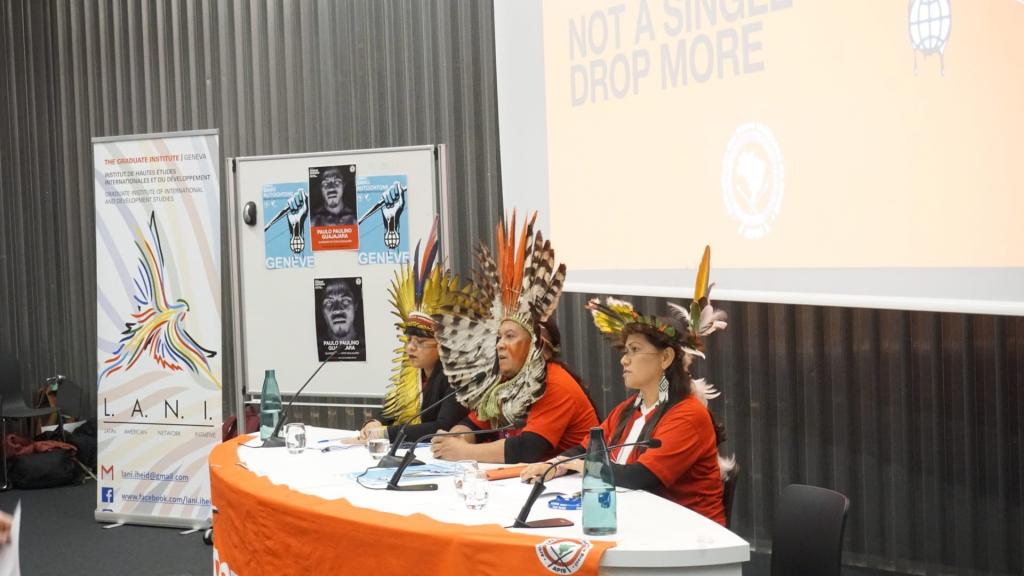With support of Greenpeace, the Centre for International Environmental Studies (IHEID), Brazil’s Indigenous People Articulation (APIB), and the Grito Collective, LANI co-organised a panel on “Diversity, Land and Rights of Indigenous Peoples in Brazil” at the beginning of November. The event was assisted by over 100 people and moderated by Graduate Institute’s Professor Susanna Hecht. The panelists included:
- Célia Xakriabá, Anthropology PhD Candidate at UFMG-Brazil and activist from Xakriabá community, in Minas Gerais
- Nara Baré, the first female General Coordinator of the Coordination of Indigenous Organizations of the Brazilian Amazon (COIAB), which representative of 160 peoples from nine Amazonian states)
- Kretã Kaingang, Indigenous activist originally from the Mangueirinha Indigenous Land, a threatened forest area in Paraná.
The debate tackled the rights of indigenous peoples in Brazil, including the different narratives of integration and assimilation of indigenous persons both in the country and in the Latin America region more broadly. Passing through the colonial times and the different policies applied by past and current administration, attempts of assimilation and extermination have always crossed the history of indigenous peoples in Brazil.
It also explored the importance of the territory for their communities, what the environment means to them -as a single body, not as separated spheres. Contemporary issues of compliance with international environmental preservation and human rights law, including the recent fires at the Amazon forest were also tackled.
Lastly, the connections between trade, consumption, deforestation, and land conflicts were debated. This provided students with the opportunity to reflect upon their academic and media accumulated knowledge and speak to the indigenous representatives they had heard of directly, bringing a new sense of reality to their understanding. There was a call from the leaders to everyone to act out and unite in the fight for the preservation of the environment – a fight that transcends any artificial territorial limits.
This article was written by the Latin American Network Initiative (LANI)


